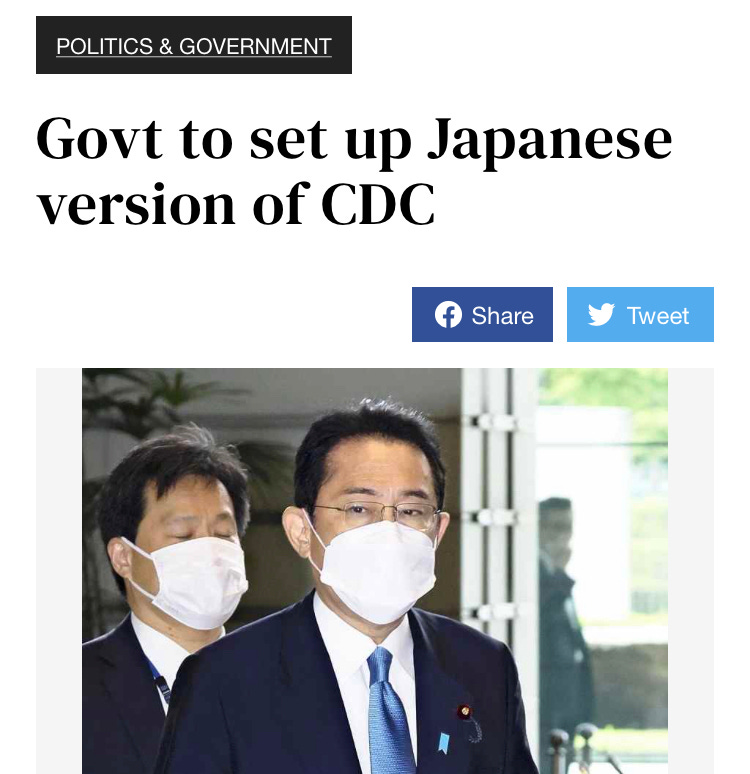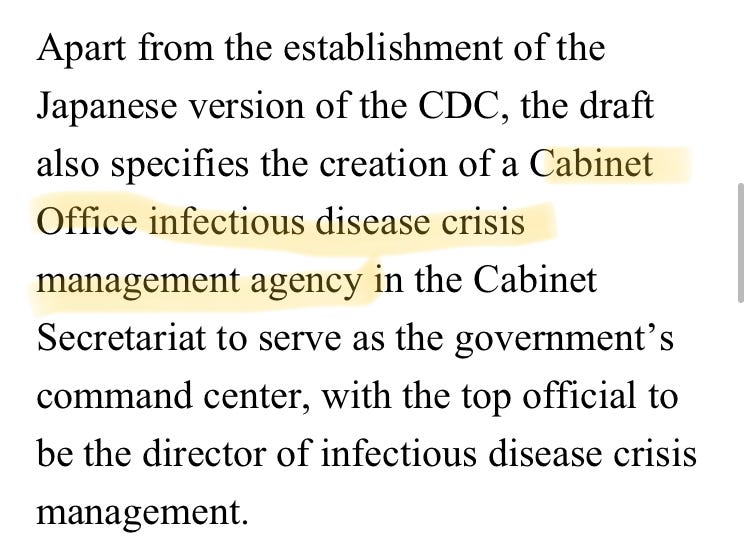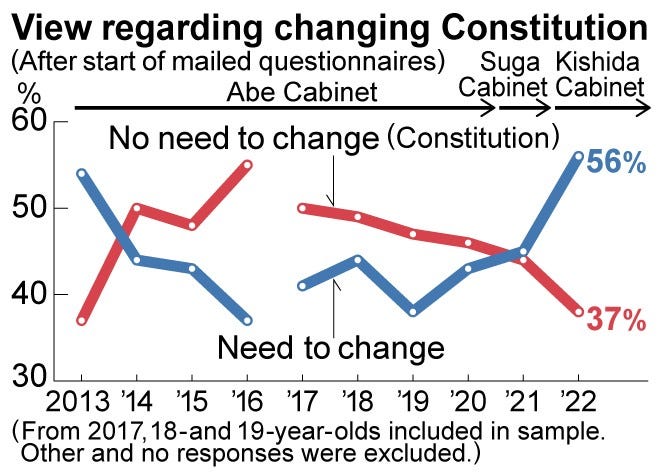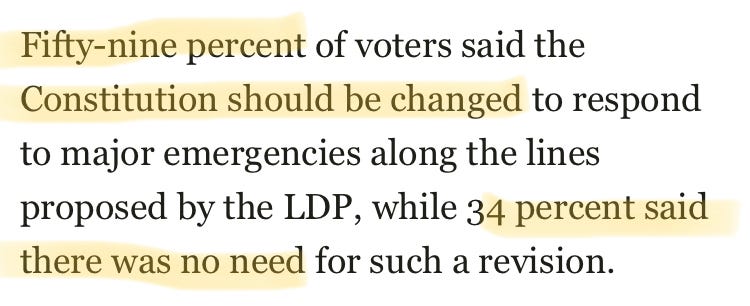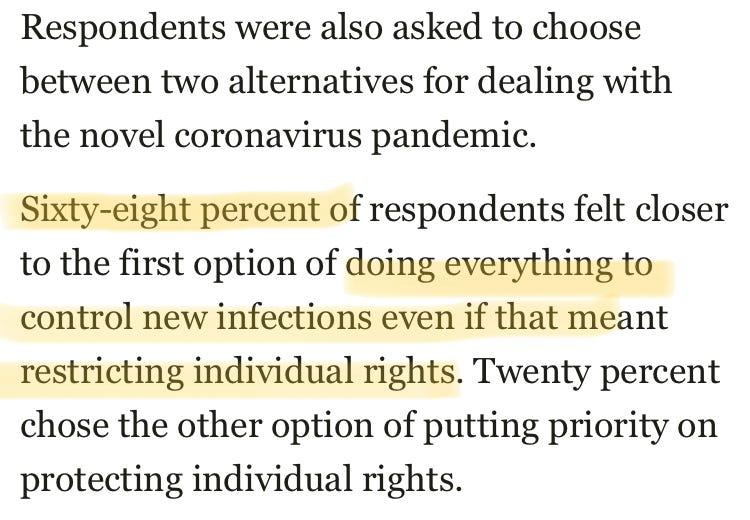In March 2021, Bloomburg declared that…
It would seem that the Japanese government has taken this advice to heart.
Oh goody! Tell me more.
And what will the Japanese CDC do exactly?
Thanks goodness! I was worried it was going to be a joke of an agency that puts out junk studies like the US CDC. But the Japanese CDC won’t be the only new kid on the block.
So what will this new agency do?
And there is another entity to complete this unholy trinity.
The aim of all this is to unify and streamline Japan’s pandemic response. So how will these new entities work together in practice? Basically, when a new infectious disease causes an outbreak of PCR+ tests, the Japanese CDC will produce outlandish worst-case scenarios based on dodgy models, the Infectious Disease Crisis Management Agency will use these scenarios to justify implementing ineffective and harmful restrictions, and the Infectious Disease Control Department will help to ensure ineffective and harmful drugs and vaccines are distributed. In other words, the same as last time but faster!
And to ensure people can get a needle in the arm without delay, the Japanese Diet passed the revision to the Pharmaceutical and Medical Devices Act enabling emergency authorisation for drugs and vaccines based on “presumed” effectiveness (e.g., antibody titters) that I wrote about previously.
But don’t worry. Safety will still have to be confirmed, and we know how diligent the Japanese government is about that.
Also, Upper House elections will be held in July, so what is the main party in the governing coalition, PM Kishida’s Liberal Democratic Party (LDP), proposing Covid-wise?
Yep. To increase the effectiveness of states of emergency (SoEs) and quasi-emergency measures (well, they could hardly be made less effective), the LDP wants to fine disobedient business owners more. I’m not sure increasing fines is the main lesson to take away from Tokyo’s order to limit business operations being judged to be illegal in the recent Global Dining case.
But the LDP has had a plan to overcome such irritating legalities since 2012: constitutional revision [1]. Specifically, the LDP proposes to add an emergency clause to Japan’s constitution. So what are the details of this clause?
In other words, the Cabinet would give itself a free hand to rule by decree after the PM declares an SoE because there would be no time to wait for legislation to be debated and passed.
So how would this affect Japan’s pandemic response? Because the current constitution guarantees freedom of movement and association, people can only be requested to not leave their houses unnecessarily and to reduce their contacts with other people during an SoE. How would these rights be affected under the emergency clause?
So individual rights could be curtailed if the Cabinet says it’s necessary.
So what about buisnesses? Currently, businesses can be ordered to stop or limit operations during SoEs if they ignore the initial requests, but only if the order meets legally defined conditions such as provable necessity, which Tokyo’s order didn’t in the Global Dining case. The emergency clause overcomes this with circular logic: the Cabinet’s orders will be deemed to be necessary if the Cabinet deems them to be necessary.
We can get a glimpse of what liberties the government may take (in both senses) under the emergency clause by looking at the area the government has had most authority during the Covid Pandemic: border policy. Japan’s decision to essentially close its borders to new arrivals for two years…
…and then let in tourists on condition that they be treated like biohazards…
…can hardly be called “necessary” or “reasonable”.
And let’s not forget that authoritarian restrictions on movement, association, and commerce to protect the nebulous concept of “public welfare” failed miserably everywhere else on Earth.
The LDP’s other major proposed constitutional revision would be to the war-renouncing Article 9. Needless to say, the Japanese government has been hyping up the Russian menace to justify that too.
To be passed, any constitutional revision requires the votes of two-thirds of both the Upper and Lower Houses of the Diet and a simple majority in a national referendum. Because of these high hurdles, the post-war constitution has never been revised. Parties in favour of revising the constitution (although not necessarily adding the LDP’s emergency clause) hold over two-thirds of the seats in the Lower House, but recent polling suggests they may have trouble reaching a two-thirds majority in the Upper Houses elections.
But if both houses vote in favour of revising the constitution, how could we expect the Japanese public to vote in a referendum? In April, 56% of respondents in a survey said they supported constitutional revision.
And for the LDP’s emergency clause specifically…
And how do memeber of the public feel about Covid measures?
Despite what the media say and many people believe, the liberty vs. life tradeoff doesn’t exist. The choice throughout the Covid Pandemic has been liberty vs. tyranny.
So to sum up, the Japanese government is going to streamline its pandemic response, lower emergency authorisation standards for drugs and jabs, and possibly hand itself virtually unlimited powers whenever the news starts screaming “Cases are rising!” Unluckily for Japan, its politicians have consistently made poor choices up to now, and it looks like they’re gearing up to make even worse choices in the future.
[1] English translations of the LDP’s proposed revisions can be read here.





